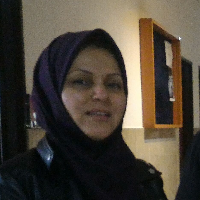Presenting a pattern for maturity of intelligence in Islamic Azad Universities, case: Tehran province
Maturity of intelligence emphasizes the excellence of the capabilities and capabilities of the organization based on the four main axes of employees, intelligence activities, process and intelligence technology.
The present study was conducted with the aim of addressing the issue of intellectual maturity in Islamic Azad Universities of Tehran province.
The research method was based on the purpose, applied and based on the nature, part of the mixed researches. The statistical community in the qualitative section included experts from the university scientific community, who were selected by targeted non-random sampling in the number of 24 people. The statistical community of the quantitative part included all faculty members of Azad universities in Tehran, and 330 people were selected as the sample size. Also, stratified random sampling was used to select statistical samples. To collect data, semi-structured interview tools and researcher-made questionnaire were used, and the validity and reliability of the tools were evaluated and confirmed. The method of data analysis in the qualitative part was theoretical coding which was done using MAXQDA software. In the quantitative part, tests such as confirmatory factor analysis were also used
The findings of the factor analysis showed that the components of individual maturity, process maturity, technological maturity as constituent factors, organizational factors, managerial factors and educational factors as effective factors and job performance, competitive advantage and job passion as the consequences of intelligence maturity. They were identified in Azad University. In this research, the implementation mechanisms of intelligence maturity were also identified under the components of operational strategy, evaluation strategy, cultural strategy and educational strategies.
By summarizing the results of this research, it can be said that intelligence maturity, in addition to being used in business, is also used in educational centers such as universities, and it is possible to benefit from the consequences of the model of intelligence maturity in universities in various individual, process and technological dimensions.
-
Antecedents and consequences affecting job plateau among school employees in Tehran
Nafiseh Ghasemi Zargar, Parivash Jafari *, , Amirhossein Mohammaddavoudi
Journal of Management and educational perspective, -
Current status of mobile learning indicators in Universities of Medical Sciences
Leila Ahangarzadeh, Hamideh Reshadatjo *, Kamran Mohammadkhani, , Akhtar Jamali
Social Determinants of Health, -
Identifying the factors affecting the growth of the employees of the country's property and documents registration organization
Najmeh Ahmadi, Kolsoum Nami *, Nader Ghourchian, Parivash Jafari
Journal of Management and educational perspective, -
Validation of the Questionnaire for Evaluating the Moral and Professional Qualifications of Educational Consultants
M .Sharifi, A. Zamani Moghaddam*, A .Jamali, H .Reshadatjoo
Journal of Ethics in Scince and Technology,



